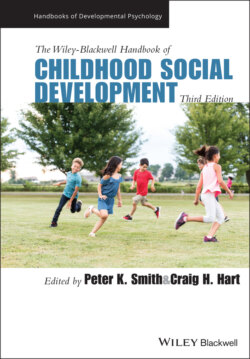Читать книгу The Wiley-Blackwell Handbook of Childhood Social Development - Группа авторов - Страница 105
Conclusion
ОглавлениеThe relationship between anthropology and social development is a complex one; at times, and in some traditions, mutually enhancing, at different times and in different traditions, mutually suspicious, even hostile. Yet despite this, there are large areas of overlap and anthropologists, whatever their background, with their emphasis on the collection and analysis of detailed ethnographic data, have undoubtedly made significant contributions to studies of all aspects of children’s development. As psychologists incorporate genuinely contextual and cultural approaches in their models of childhood, important new insights are adding to a fuller understanding of children and young people’s experiences and responses to them. These are further expanded as psychologists begin not just to talk to children and young people, but also to listen and to hear them, understanding them not only as future adults but also as people in the present, seeking to identify their meanings and interpretations of their worlds and using these to inform research. At the same time, anthropologists have begun to recognize the need to learn from psychology and to apply their knowledge and theories to studies of children’s social development. It is to be hoped that, in future, there can be greater dialogue and that studies of social development become multidisciplinary projects, characterized by different ways of looking at and understanding children which, while they differ in epistemological and methodological background, nevertheless contribute equally to more holistic studies of childhood and children’s lives.
